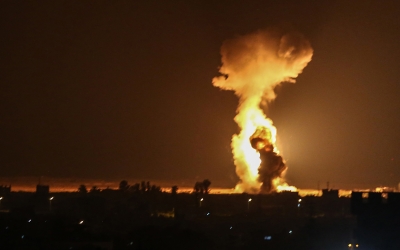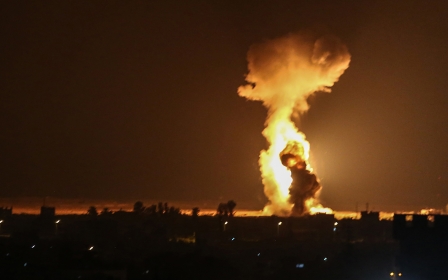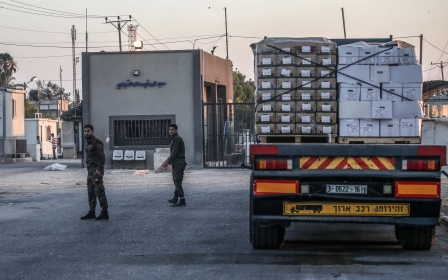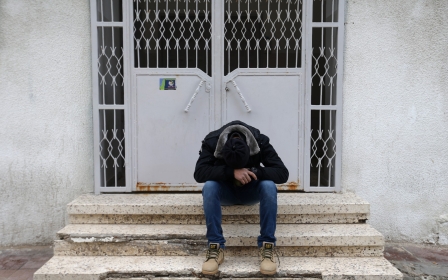Israel chokes Gaza fuel supplies as tensions rise
Israel announced on Thursday it was halting the import of fuel into the Gaza Strip, a day after launching strikes against Hamas targets in response to a wave of incendiary balloons dispatched from the besieged Palestinian territory in recent days.
Israel on Wednesday night struck a Hamas naval force compound, underground infrastructure and observation posts with warplanes, attack helicopters and tanks.
Palestinian groups had launched the incendiary balloons in a bid to pressure Israel to ease its blockade of the Strip and allow new economic projects.
Escalating tensions on Thursday, Defence Minister Benny Gantz ordered a halt to fuel imports into Gaza "in light of the continued launching of incendiary balloons from the Strip" towards Israel, the defence ministry said in a statement.
Hamas spokesman Fawzi Barhoum called the measure a "grave act of aggression" that "aims to worsen the crisis of our people in the blockaded Strip". The Mediterranean coastal enclave relies on Israel for most of its fuel and gas.
The halt in fuel could shut down Gaza's sole power plant and lead to further electricity cuts for households and businesses, according to Mohammad Thabet, an official with Gaza's main power distribution company.
Palestinians in Gaza currently get six hours of electricity followed by a 10-hour power cut dure to chronic fuel shortages.
A ceasefire deal brokered last year by Egypt, Qatar and the United Nations following a deadly surge in violence was to supposed to see Israel allow new development projects, including an industrial zone and a hospital.
Hamas has accused Israel of not fully complying with those understandings. Israel shuns direct negotiations with Hamas and has never publicly acknowledged the deal.
On Wednesday, Israel reduced the area where it permits Palestinians to fish from 15 miles (24km) to eight miles (13km), calling it a response to the balloon launches.
Israel had on Monday closed the Kerem Shalom crossing, one of three main Gaza border crossings with Israel and Egypt. On Wednesday, the Rafah border crossing with Egypt was re-opened for three days on humanitarian grounds.
Israel was waged three wars in Gaza since 2008.
Despite a truce last year backed by the UN, Egypt and Qatar, Israel has sporadically attacked Gaza and occasional rockets have been fired into Israeli territory from the enclave.
The Gaza Strip has a population of two million, more than half of whom live in poverty, according to the World Bank.
Middle East Eye delivers independent and unrivalled coverage and analysis of the Middle East, North Africa and beyond. To learn more about republishing this content and the associated fees, please fill out this form. More about MEE can be found here.





